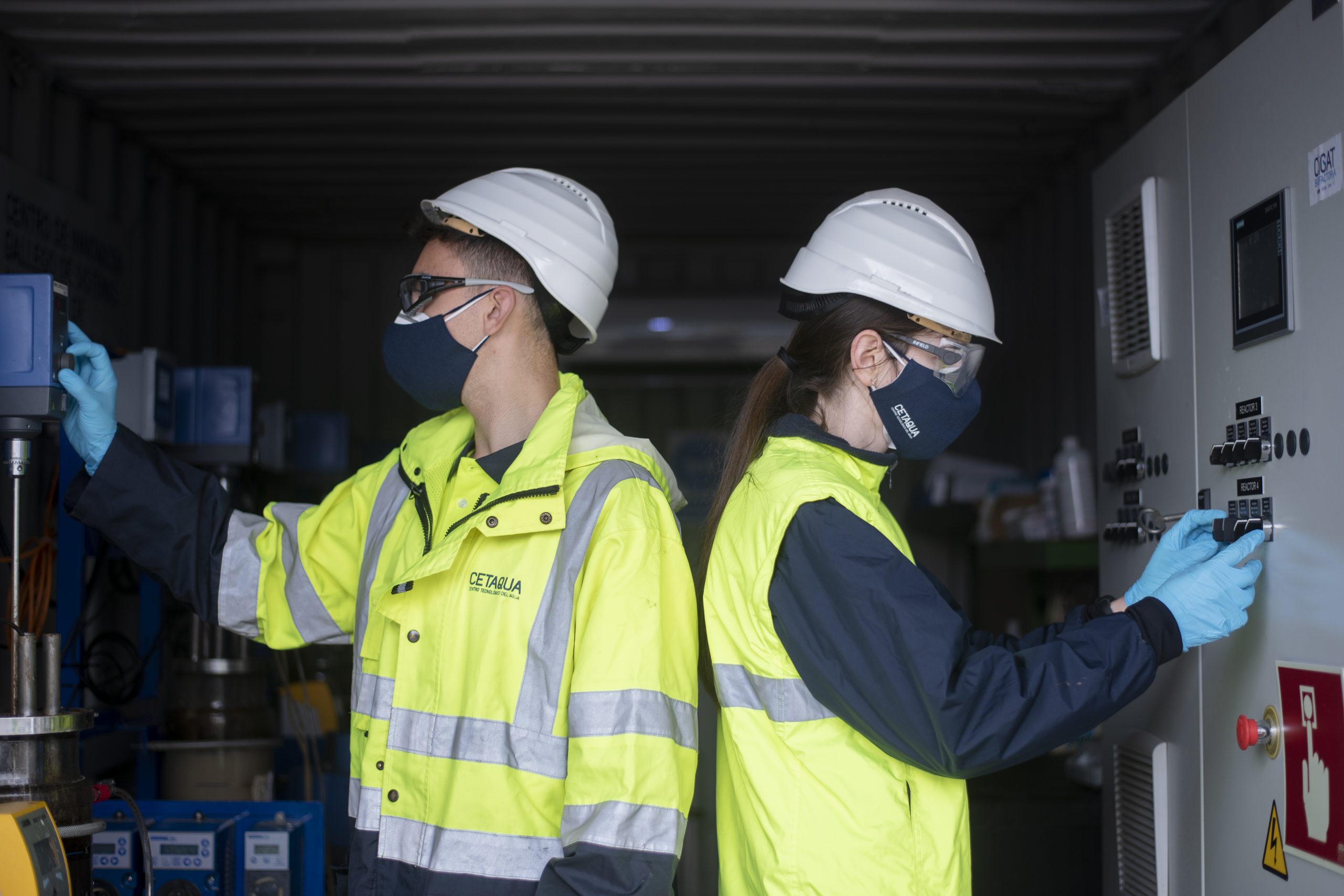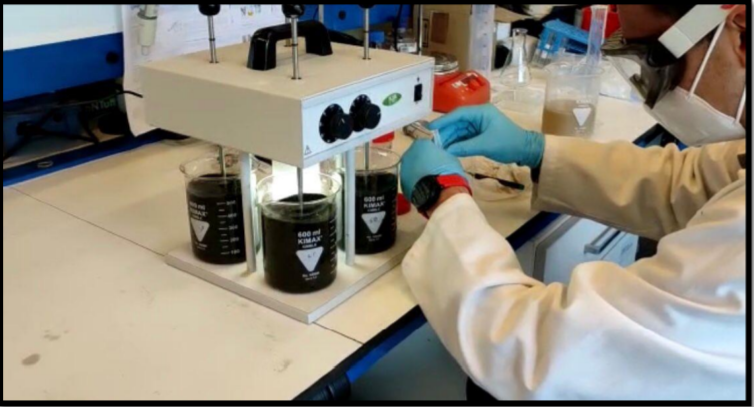
One of the objectives of the Ecoval Sudoe project is to demonstrate the technical feasibility of producing volatile fatty acids (VFA) from urban sludge. To do this, at the Ourense Wastewater Treatment Plant (WWTP), Cetaqua has set up different tests to optimise the generation of acids such as acetic, propionic, or butyric acid from sewage sludge.
In order to determine the most suitable operating conditions for the pilot VFA production plant, different laboratory-scale tests were first carried out, such as batch tests on a 0.5L scale and the operation of semi-continuous reactors of 5L volume, which demonstrated the suitability of sewage sludge as a substrate with high potential for the production of high added value bioproducts with VFA.
The information provided at the laboratory scale has helped Cetaqua technicians to have a first approximation of the VFA production yields that can be obtained from sludge with and without pre-treatment. They were also able to analyse the effect of operating parameters such as pH, feed/microorganism ratio, hydraulic residence time, etc.
On a pilot scale, the technicians have optimised the fermentation process for the production of VFA, obtaining a stream that has to undergo solid-liquid separation, a unitary operation that has had to be perfected thanks to “jar tests” that have made it possible to determine the optimum doses of coagulant and flocculant for the division of the solid and liquid fractions. Thus, the objective of producing a liquid current rich in VFA for the partner NEREUS to study its clarification and concentration and a high-dryness solid cake that INSA will recover energetically has been achieved.
Following these tests, work is now continuing on the pilot plant which, after a start-up phase marked by hydraulic difficulties in operation and the necessary adjustments, is now operating more robustly. It will soon begin to be fed with biowaste.
Subscribe to our newsletter so you don’t miss out on the latest news!


